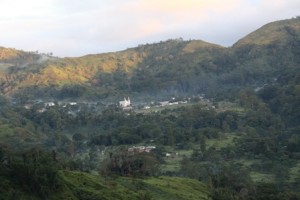National Development Policy

The National Development Policy, predicted in the National Strategic Development Plan (NSDP) – which the Prime Minister has been consulting with the population throughout the country – tries to separate the economic sectors and give priority of development in accordance with the needs and the economic situation that the country currently lives in.
“The oil and gas sector remains under the State’s guardianship. It is the State that will control the investments in this sector, in the oil and gas industry”, states the Vice-Minister of Economy and Development, Cristiano da Costa, adding that this situation will be maintained for the next 10 to 20 years, according to the NASP. It will be the State that will intervene, control and direct all investments related with the oil and gas sector. This oil and gas sector is an area to which we are going to give priority because it will finance the State itself”.
Another important sector for the country is the agricultural sector, where its development is one of the national priorities. Timor-Leste continues to depend on cereal importation, and although “in medium and long term strategic terms, this is not a beneficial economic sector because, in the region, we can’t compete with Thailand and Vietnam, this is another sector to which we are giving development priority for the next 5 to 10 years” explains the Vice-Minister of Economy and Development.
This necessity resides in the fact that Timor-Leste’s population is predominantly agricultural, or in other words, the majority of the population lives in rural areas and dedicates their life to agriculture. “We have to try to develop this sector in a first phase, in the short to medium term, to guarantee self-sufficiency and minimize importation” concluded the Vice-Minister, Cristiano da Costa.”
On an economic point of view, Timor-Leste continues to be a dependent country since the commercial deficit is very large. The unbalance between import and export is almost 50 per cent, meaning that almost half of the national budget goes abroad. Despite this dependency, economic growth has been increasing. “We have to face this situation with prudence, that is why giving priority to the oil and gas sector, because it finances the State, to the agricultural sector, for self-subsistence and to infra-structures, that at this moment occupy the larger attention of the State, would be a way out, would serve as an impulse for the others sectors”.
Tourism is also an important economic sector for the country with quite a lot of potential, due to the country’s geo-economical position. “We feel that this is a strategic economic sector. A sector that, of course, will be conceded to the private sector” stated the Vice-Minister of Economy and Development, concluding: “So that the other sectors can progress according with the expectations, its important to dedicate our attention to the country’s infra-structures: roads, water for sanitation and irrigation, electricity, ports, airports, telecommunications…All these are priority areas at this moment, because they are part of the basic infrastructures necessary for the start of the agricultural, tourism and other sectors’ development”.










































